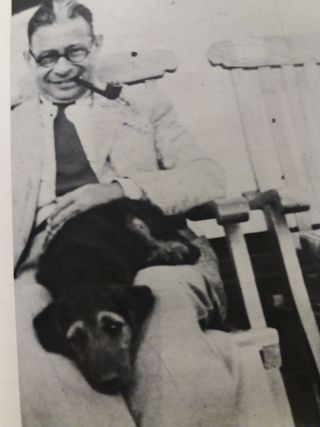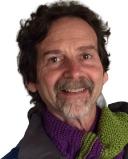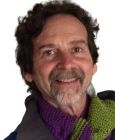Psychoanalysis
Psychoanalysis in Existential Terms: It's Ever-Evolving
More on the lasting legacy of Otto Rank.
Updated November 17, 2023 Reviewed by Lybi Ma
Key points
- The neglected existential-humanistic therapeutic approach of the psychoanalyst Otto Rank.
- What is our relationship to existence above and beyond our relationship to our biology and culture?
- Addressing our groundlessness and helplessness beginning at birth.
- Skills like presence can address preverbal-kinesthetic aspects of our struggles and liberation.
Can the child and subsequent adult develop an “inner home” marked by supportive and understanding internalizations (self-relationships) so that new experiences and the encounter with “difference” can lead to an ever-evolving ground within the groundlessness, which in turn can lead to a more creative, self-and-other loving, exploratory life? Or to put it in existential terms that expand on interpersonal attachment theory: Can the child develop ontological security, a sense of “at-homeness” in its own being, as Laing would say, as distinct from ontological insecurity, which is the groundlessness and helplessness without guardrails and without guardians (both inner and outer).

This entire edifice of Rank’s conversion of psychoanalysis into existential terms revolves around what he calls “the psychology of difference” and the cultivation of “will” to address those differences. The differences emerge the moment there is a discrepancy between the “safe and familiar” and the sudden, abrupt thrownness into autonomous, uncharted life—which as our esteemed colleague Ludwig Janus pointed out can happen even prenatally.
And so it follows that the enormous problem of sameness now becomes the pivotal fork in the road for that developing child and subsequent adult. Consider how closely so many of us adhere to sameness in our individual and collective lives. We so often cling desperately to our same routines, rules, fashions, ideologies, tribes, gods, heroes, biases, and so on, precisely because to veer from those samenesses, to step out of the box, is the primal equivalent of being in a free fall, that groundlessness and helplessness for which so few of us tragically are afforded the ability to navigate. Hence here is where Rank’s existential genius shines through both individually and collectively. He is advocating for us to work in direct here-and-now contact with our samenesses and our battle to break out of those samenesses because they are so often crushing our souls. They are safe and familiar, sugary sweet hell holes that drive us to maddening extremes, whether those are isolative and withdrawn or tyrannical and grandiose, or on the other hand regimented and hollow.
What all this comes down to is how desperately so many of us strive for sameness in our lives—even though this striving may be killing us, literally, and killing others, literally, as we see every day on news reports of how psychological rigidity wreaks havoc on our health and our relations with others. It bears repeating that this sameness striving can be explained by our terror of difference—that floundering gap—for which all our illusions of power and control, our technologies, and our ideologies cannot help us; whereas relationships might, if they are emotionally attuned relationships, relationships that recognize the cosmic stakes in our struggle.
The therapeutic relationship then can become the psychodynamic staging ground where all our sameness strivings can be played out and reevaluated. It can become a relatively safe battleground where the encounter with differences can be risked and tried out, felt, and re-owned. And it can become the staging ground where what I call “life-enhancing anxiety” or the capacity to live with and make the best of the depth and mystery of existence or to live on the edge of wonder and discovery as distinct from terror and overwhelm, can become real. And finally, it can become the staging ground for “awe” where the humility and wonder or sense of adventure toward living becomes an everyday reality.
It is now perhaps evident how Otto Rank is best seen as the founding figure of existential-humanistic psychology. Not only did he set forth the theoretical foundation for existential-humanistic principles of practice, but he highlighted practical applications of that framework that Rogers, May, and Bugental in particular updated for contemporary audiences. Among these principles are the stress on the genuine relationship between therapist and client; the emphasis on having an experience and not just a contrived or protocol-driven performance in that relationship; the emphasis on the here and now and how the past manifests in the present; the emphasis on preverbal-kinesthetic dimensions of healing, including therapist and client presence as key to that healing; the emphasis on client self-discovery and not the adherence to a therapeutic agenda—either personal or professional. And finally, the stress on the cultivation of a capacity for life-enhancing anxiety and awe, for living that can enrich and endure for a lifetime.
Let Rank have the final say from his culminating work Beyond Psychology. He speaks here of the power of the irrational, but my understanding is that he is referring to the “nonrational” and by implication our primal relation to existence, to the beyond that cannot be explained but must be lived. He writes:
“Although this book is pleading for the recognition…of the irrational element as the most vital part of human life, let it be understood that the rational structures which [humans] built up from time immemorial in religion and art, in philosophy and psychology are equally an essential part of human existence. It is merely a matter of the right proportion and a more balanced evaluation of the natural as against the artificial. That [humans] so easily lose sight of [their] natural selves and thus distort reality to the point of madness is deeply rooted in [their] fear of natural forces threatening not only from without but even more from within….
[Human beings are] born beyond psychology and [they die] beyond it but [they] can live beyond it only through vital experience of [their] own—in religious terms through revelation, conversion, or rebirth” (pp. 15-16).
One brief but urgent addendum if I may. Rank’s powerful advocacy for the nonrational or preverbal-kinesthetic is precisely why our profession cuts itself short when it prides itself on being a “psychological science” and those who practice it “psychological scientists.” We are not only scientists in that distant and calculative sense. We are “Scientists-Artisans” or practitioners of a human science not only a natural science, and if we keep on beating down that latter path we risk not only short-changing our patients but profoundly misunderstanding the motives and consequences of collective upheavals, such as war, hate and violence.
We’ve simply got to come to better terms with the radically unknown—the groundlessness and helplessness of our condition—if we are to have a chance at a more equitable, sustainable, and awe-based world.
Go to: Part I
References
Note: This post is adapted from an invited talk for the first (to my knowledge) international conference on Rank titled "Unleashing Otto Rank: The Creation of Modern Depth Therapy" on November 4-5, 2023. The talk was sponsored by the Existential-Humanistic Institute with affiliate sponsors the University of Leuven, Belgium, the Existential-Humanistic Northwest, Portland, Oregon, and the Existential-Humanistic Institute Europe, Madrid, Spain. Speakers included Robert Kramer, Matthew Fox, Ellen Handler-Spitz, Marie Becker, Siebrecht Vanhooren, Ludwig Janus, Sara Ekenstierna, and Kirk Schneider. For more information about recordings of the conference, check for updates.
Kramer, R. (2019). The Birth of Relationship Therapy: Carl Rogers Meets Otto Rank. Psychozocial-Verlag.
Rank, O. (1924). The Trauma of Birth. Dover.
Rank O. (1941). Beyond Psychology. The Haddon Craftsmen.
Schneider, K. (2023). Life-Enhancing Anxiety: Key to a Sane World. University Professors Press.




